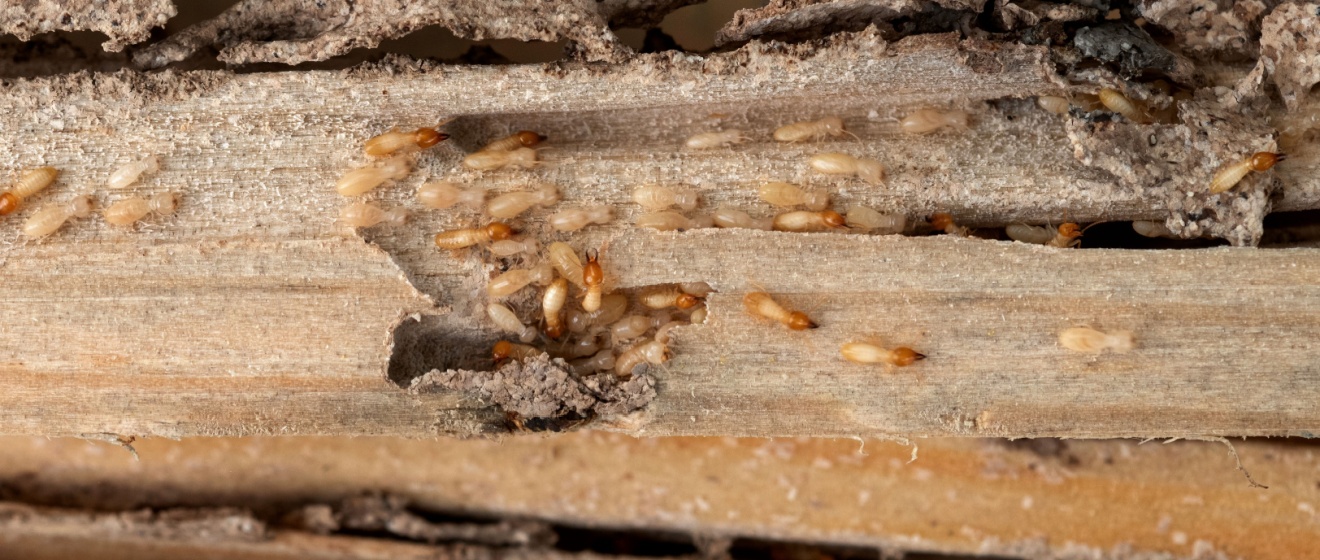Termites are one of the most destructive pests that can invade a home, causing significant structural damage if left unchecked. If you’ve discovered termites in your home, you might be wondering if it’s possible to tackle the problem on your own. While there are numerous DIY termite treatment options available, it’s crucial to understand the complexities of termite infestations and why professional intervention is often the best course of action.
Understanding Termite Behavior
Termites are social insects that live in large colonies, often numbering in the millions. They feed on cellulose, which is found in wood and other plant materials, making your home an attractive target. The most common types of termites include subterranean termites, which build their colonies underground, and drywood termites, which can establish themselves directly within the wood of your home.
One of the biggest challenges in dealing with termites is that they often go unnoticed until significant damage has already been done. Termites can hollow out wood structures from the inside, leaving only a thin veneer of timber that conceals the damage. By the time visible signs of infestation, such as mud tubes, frass (termite droppings), or damaged wood, are apparent, the infestation may be extensive.
DIY Termite Treatments: Pros and Cons
There are several over-the-counter termite treatment options available, including liquid termiticides, bait stations, and termite foam sprays. These products can be effective in killing termites on contact or preventing them from accessing your home. However, DIY treatments often come with limitations.
- Limited Reach: DIY products are typically only effective against termites that are directly exposed to the treatment. Termites that remain hidden within walls, floors, or underground colonies may not be affected, allowing the infestation to continue.
- Lack of Professional Equipment: Professional termite exterminators use specialized equipment to detect and treat termite infestations. For example, they might use infrared cameras to locate termite activity behind walls or inject termiticides deep into the soil to reach subterranean colonies.
- Incomplete Eradication: Termite colonies are vast, and killing a few hundred or even a few thousand termites is often insufficient to eradicate the entire colony. If the queen survives, she can continue to produce thousands of new termites, prolonging the infestation.
- Health and Safety Risks: Some DIY termite treatments involve the use of chemicals that can be harmful if not applied correctly. Professional exterminators are trained to handle these substances safely, minimizing the risks to you and your family.
When to Call in the Professionals
Given the challenges associated with DIY termite control, it’s often best to enlist the help of a professional exterminator. Termite control experts have the knowledge, experience, and tools necessary to eliminate termite infestations effectively. They can conduct a thorough inspection of your home, identify the extent of the infestation, and recommend a treatment plan tailored to your specific situation.
Professional termite treatments often involve a combination of methods, including liquid termiticides, bait systems, and wood treatments. In some cases, fumigation may be necessary to eliminate severe infestations. While these treatments may require a more significant upfront investment than DIY solutions, they offer the peace of mind that comes with knowing the infestation has been fully eradicated.
Preventing Future Infestations
Once termites have been eliminated, it’s essential to take steps to prevent future infestations. Regular termite inspections, especially in areas prone to termite activity, are crucial. Additionally, addressing conditions that attract termites, such as moisture issues, wood-to-ground contact, and wood debris around your home, can reduce the risk of reinfestation.
If you’re dealing with a termite problem, the best approach is often to consult with a professional. While DIY treatments can be tempting, they rarely provide the comprehensive protection that professional termite control offers. By investing in professional services, you can protect your home from the devastating effects of termites and enjoy lasting peace of mind.
